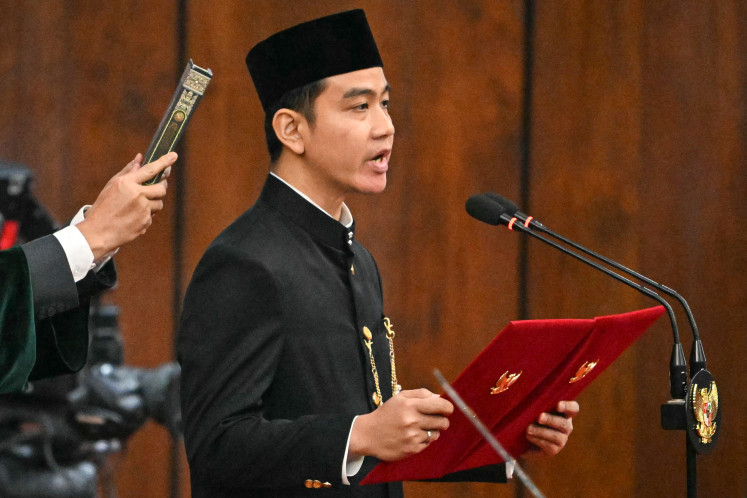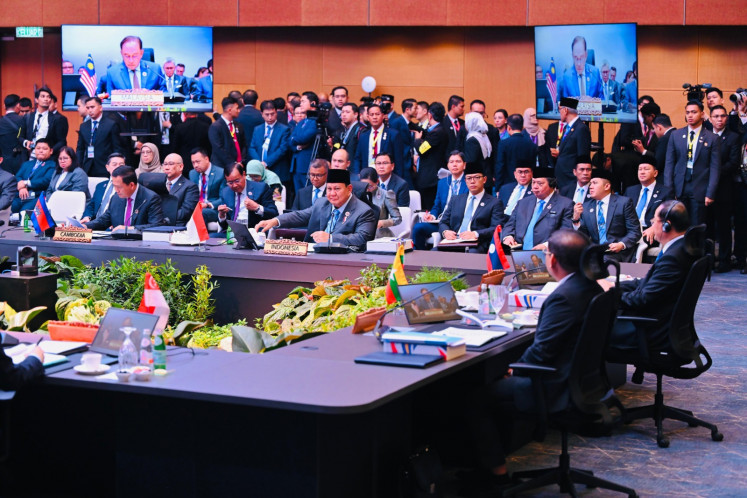ASEAN standard promising, but worrying
Jamu (herbal medicine) has long been part of Indonesian healing methods and it becomes an alternative when health care fees and prices of modern medicine continue rising
Change text size
Gift Premium Articles
to Anyone

J
amu (herbal medicine) has long been part of Indonesian healing methods and it becomes an alternative when health care fees and prices of modern medicine continue rising. Unfortunately some producers, at domestic and international levels, take advantage of these conditions by mixing certain chemicals to their products which are hazardous to public health.
Therefore the idea to introduce ASEAN standards for traditional medicine was welcome by the industry, even though some concerns have emerged.
"We are most concerned with the Good Manufacturing Practice *GMP* standard because we all know jamu producers in Indonesia are mostly small and medium enterprises that produce jamu traditionally," Abdul Ghani, deputy head of the Jamu Industry Association (GP Jamu) said Friday.
He said among the 1,166 GP Jamu members, around 90 percent were small-and middle-scale enterprises, therefore if the GMP was enforced, the traditional jamu makers would find it hard to keep up with other countries, because this could be quite difficult.
"It requires the producers to fulfil certain levels *of standards* on pollution, pesticides and other detailed technical requirements. Therefore if the requirements are implemented I'm afraid it will force around 50 percent of the jamu producers to close down," said the man who has participated in these discussions in the last five years.
He expected the government could fight for a partial derogation from these standards so they would not have to be implemented by the whole industry straight from the start.
"It is all right for the big producers because I'm sure they all can catch up with the new standards. Therefore I suggest the requirements to be compulsory for the export oriented producers only," he said.
In the meantime, he added, the big producers also had responsibility to help the small and medium producers to improve the quality of their products.
Ruslan Aspan, deputy for the traditional medicine, cosmetic and complementary products' monitoring division at the Food and Drug Monitoring Agency (BPOM) said they were still discussing many technical requirements and thought they would not reach agreement anytime soon even though ASEAN countries had set a deadline for a deal by 2011.
"It is actually good to improve competitiveness in regional and world markets where we all will have similar regulations and standards," he said.
He added, he understood the concern of the industry to protect small and medium industries.
"So far we have given them training to improve product quality by using good traditional medicine production methods," he said.
According to data from the World Health Organization in 2001, some 40 percent of 220 million Indonesian people use traditional medicine, 70 percent of whom are in rural areas.
Indonesian herbal markets are also quite promising with annual sales totalling between US$144 million and $189 million in 2000-2002.









